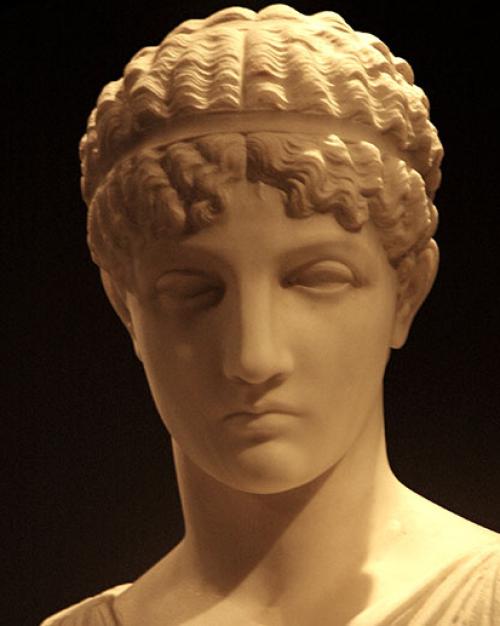Ghosts, sacrifices, visions –Seneca’s ancient tale of the aftermath of the fall of Troy, “Troades” (“The Trojan Women”), is a Roman tragedy in the grand tradition. In April, 24 Cornell classics students staged the play in the original Latin (with English supertitles), demonstrating both the power of Seneca’s language and the vigor of Cornell’s living Latin program.
When he first read the play in Professor Frederick Ahl's Tragic Theater course, “I was astounded by its exceptional poetry and drama,” said co-director Nathan Chazan ’19. “In Seneca's plays I found a voice that seemed to be speaking directly to the sort of existential problems I'd been wrestling with, and this was someone who was living 2000 years ago.”
Chazan suggested the idea of staging the play to Daniel Gallagher, the Ralph and Jeanne Kanders Lecturer in Latin, who enthusiastically endorsed the idea and co-directed the production.
“It took an enormous amount of commitment for these Cornellians to stage – unabridged and in the original Latin – a masterpiece of ancient theatre,” said Gallagher. “They worked tirelessly to create a production that showcases Seneca’s extraordinary use of Latin to convey the despondency of the Trojan women, the deceptiveness of their Greek captors, and the horrific deaths of two children.”
“Troades” is a Roman version of the Greek tragedy about the women who survive the fall of Troy. Before their Greek conquerors haul them off, an oracle demands that two of their offspring be offered as human sacrifices. The play examines whether death would be preferable in the face of such senseless slaughter.
“Roman theater is often dismissed as being secondary to Greek theater, and by putting on the play in Latin I think we were able to showcase how incredible in its own right a play composed in Latin can be,” said Chazan. “For students of the language, performing in Latin and hearing the Latin language in performance adds a new dimension to our education and engagement with the language. Great art enriches us, always. I'm thankful to our cast and to our musicians for conveying the incredible emotion and elegance of Seneca's Latin words.”
The play, which featured an original musical composition by Ellie Cherry ’19, was sponsored by the Department of Classics in the College of Arts and Sciences and the Ancient Theater Performance Group of Cornell University.




